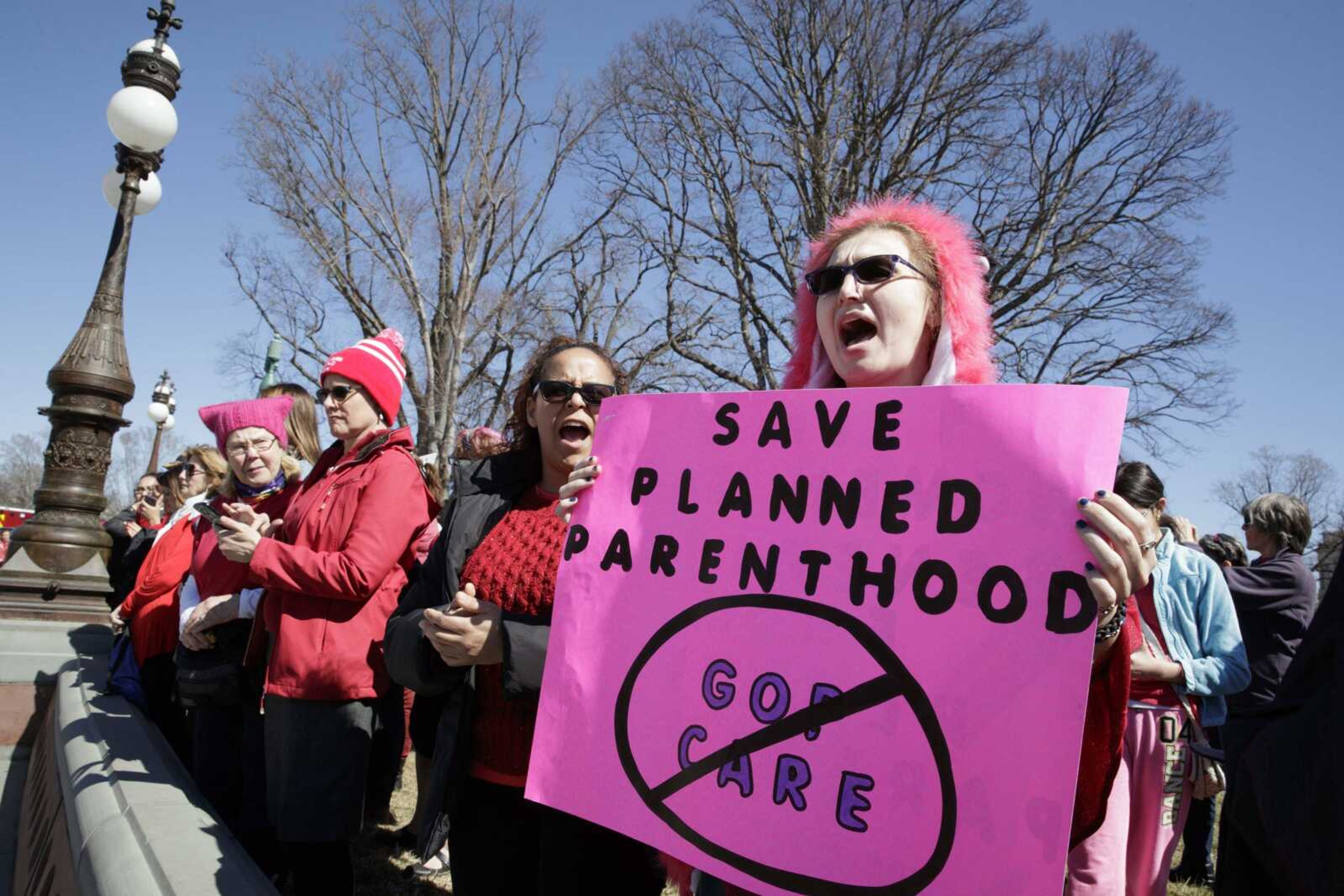Abortion foes cheer series of advances, as opponents protest
PHOENIX -- From the U.S. Capitol and the White House to far-flung battlegrounds in Arizona, Iowa and elsewhere, it's been a dramatic fortnight in the debate over access to abortion and birth control. Foes of abortion celebrated a series of advances and claimed new momentum, as abortion-rights supporters mounted protests to try to blunt it...
PHOENIX -- From the U.S. Capitol and the White House to far-flung battlegrounds in Arizona, Iowa and elsewhere, it's been a dramatic fortnight in the debate over access to abortion and birth control.
Foes of abortion celebrated a series of advances and claimed new momentum, as abortion-rights supporters mounted protests to try to blunt it.
Planned Parenthood, the anti-abortion movement's prime target, called it "the world's worst week for women's health."
Among the developments in recent days:
- House Republicans passed a health-care bill that would halt most federal funding to Planned Parenthood for a year and expand restrictions on private insurance coverage of abortion.
- President Donald Trump issued an executive order on religious liberty that likely will make it easier for employers to drop coverage of contraceptives from their health-care plans. The secretary of Health and Human Services, conservative physician Tom Price, said he would act swiftly "to safeguard the deeply held religious beliefs of Americans who provide health insurance to their employees."
- Trump appointed a prominent anti-abortion activist, Charmaine Yoest, to serve at HHS as assistant secretary of public affairs. Yoest, as president of Americans United for Life from 2008 to 2016, played a key role in the enactment of scores of state laws restricting abortion access. Her appointment was lauded by Vice President Mike Pence, who declared in a speech, "For the first time in a long time, America has an administration that's filled top to bottom with people who stand without apology for life."
- Iowa Gov. Terry Branstad signed a bill banning most abortions after 20 weeks of pregnancy. A similar bill has reached the governor's desk in Tennessee; a third such measure is pending in Missouri. Similar laws are in effect in at least a dozen other states, and Trump has promised to sign a federal 20-week ban if it can survive a potentially difficult path through Congress.
- Republican lawmakers in Arizona and Iowa took steps to join a growing list of states that have acted to curtail public funding for Planned Parenthood, which is the leading provider of abortions in the U.S. but also provides a range of other health services that would be affected by the funding cuts.
In Iowa, the GOP plan is to create a state-run family-planning program that excludes abortion-providing organizations such as Planned Parenthood. Iowa would give up federal Medicaid money and instead spend about $3.1 million in state funds.
In Arizona, GOP lawmakers have included a provision in the state budget that diverts about $2 million in federal funding away from Planned Parenthood.
Bryan Howard, president of Planned Parenthood Arizona, said the five clinics in jeopardy serve many uninsured patients and could close if they lose the money.
He said those funds have helped serve 20,000 people with contraception, cancer screenings and other non-abortion treatments.
Blanca Chico, a 39-year-old from Phoenix, said as an uninsured patient, Planned Parenthood Arizona has given her health services at a reduced cost she can afford.
Chico, a mother of four, said she was able to get an intrauterine device for less than half its usual price because her clinic only made her pay what she was able.
"They are helping a lot of people, because not everyone is able to pay for a consultation or all of the medication," Chico said. "And they only ask for a donation for the services."
Chico, who also has used the clinic for annual checkups and Pap tests, said the proposed cuts would force her to find another provider.
"It's very complicated finding a place that is low cost and that I feel confident I can get the services," Chico said. "I have felt really satisfied with the clinic. ... They have always helped me with everything."
Connect with the Southeast Missourian Newsroom:
For corrections to this story or other insights for the editor, click here. To submit a letter to the editor, click here. To learn about the Southeast Missourian’s AI Policy, click here.








